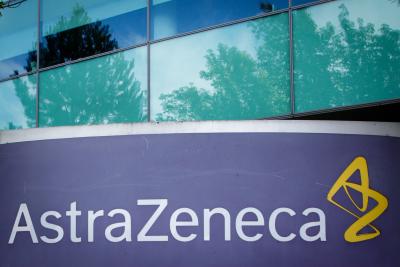WILMINGTON, Del. — AstraZeneca’s immunotherapy IMFINZI® (durvalumab) has been granted Priority Review and Breakthrough Therapy Designation by the U.S. Food and Drug Administration (FDA) for the treatment of patients with resectable early-stage and locally advanced gastric and gastroesophageal junction (GEJ) cancers.
The FDA’s decision to grant Priority Review is based on data from the Phase III MATTERHORN trial, which demonstrated a statistically significant and clinically meaningful benefit in event-free survival (EFS) for patients treated with a perioperative IMFINZI-based regimen compared to chemotherapy alone. If approved, IMFINZI would become the first immunotherapy-based regimen available for this patient population in the perioperative setting.
“This Priority Review reinforces the potential for a perioperative approach with IMFINZI to transform care for patients with early gastric and gastroesophageal junction cancers,” said Susan Galbraith, Executive Vice President, Oncology R&D at AstraZeneca. “These patients frequently face recurrence or progression despite surgery and chemotherapy, and this novel approach is poised to change the clinical paradigm.”
The MATTERHORN trial, results of which were presented at the 2025 American Society of Clinical Oncology (ASCO) Annual Meeting and published in The New England Journal of Medicine, evaluated IMFINZI in combination with FLOT chemotherapy (fluorouracil, leucovorin, oxaliplatin, and docetaxel) before surgery (neoadjuvant), followed by continued IMFINZI and chemotherapy after surgery (adjuvant), and then IMFINZI monotherapy.
In an interim analysis, the IMFINZI-based regimen showed a 29% reduction in the risk of disease progression, recurrence, or death compared to chemotherapy alone (HR = 0.71; 95% CI: 0.58–0.86; P < 0.001). The median EFS was not reached in the IMFINZI arm, while it was 32.8 months in the comparator group. At 12 months, 78.2% of patients in the IMFINZI group were event-free, versus 74.0% in the chemotherapy-only group. By 24 months, the EFS rate was 67.4% compared to 58.5%, indicating increasing benefit over time.
The trial also showed a positive trend in overall survival (OS), a key secondary endpoint, with a hazard ratio of 0.78 (95% CI: 0.62–0.97; P = 0.025), although formal OS analysis is ongoing.
IMFINZI’s Breakthrough Therapy Designation reflects its potential to address a significant unmet need in early-stage gastric and GEJ cancer. In 2024, an estimated 6,500 patients in the U.S. were treated for early-stage or locally advanced forms of the disease.
The safety profile of IMFINZI in combination with FLOT was consistent with prior data, and the rate of patients undergoing surgery was comparable between the treatment and control groups. Rates of Grade 3 or higher adverse events were similar across both arms.
A regulatory decision from the FDA is expected in the fourth quarter of 2025 under the Prescription Drug User Fee Act (PDUFA) timeline. If approved, IMFINZI would mark a major advance in the standard of care for patients facing one of the world’s most aggressive cancers.


